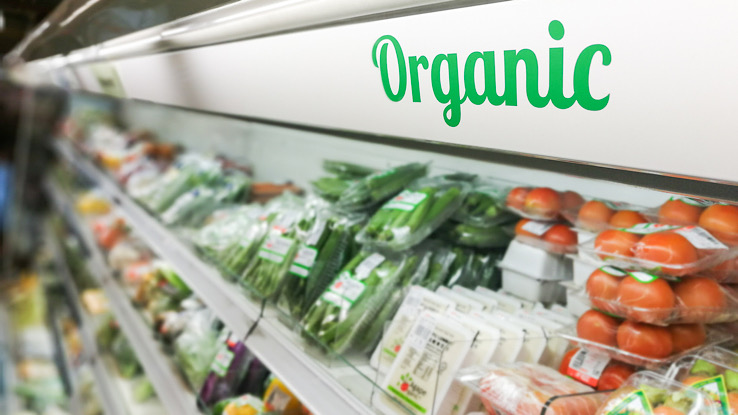How To Suceed As A Food Service Manager

There are often debates virtually whether organic food is amend than inorganic food. There are concerns over the amount of chemicals used, nutritional value, and how expensive products are. Here is some useful information that might help yous decide whether you desire to go organic or inorganic the next fourth dimension you lot go to the grocery store.
The give-and-take organic can depict many different products like:
- Meats
- Fruits
- Vegetables
- Dairy products
- Grains
Organic foods are grown without the apply of chemicals and accept the intention of helping the environs. Plants can assist conserve water usage, livestock aid maintain the country, and help a farm be more cocky-sustaining. Some of the techniques used for organic foods are:
- Using natural fertilizers, similar compost, instead of chemical fertilizers.
- Using insects, birds, plants, and other natural means of pest control instead of spraying insecticides over crops.
- Manually managing weed growth through farming techniques, like ingather rotation, eliminating the use of herbicides.
- Using natural methods to care for animals like organic feed rather than giving animals growth hormones.
Are Organic Foods Healthier than Inorganic Foods?

While in that location are withal ongoing studies and tests to determine if organic foods are more nutritious than conventional foods — researchers have yet to determine whatsoever significant differences in nutritional value between the ii. However, removing chemicals and additives from crops and livestock may be plenty reason to convince some people to buy organically grown and unprocessed foods.
The Dangers of Organic Food
While there are often fewer traces of pesticides on organic food, the use of manure every bit a fertilizer can leave trace amounts of bacteria on food. E. coli can be especially dangerous every bit it tin can cause nutrient poisoning. There is likewise a concern that since many people view "organic" as "healthy," they may not expect at the product's nutritional value.
Organic Labels
The USDA regulates organic food labels to help consumers make choices:
- "100% Organic" label certifies that the food product is made entirely of organic ingredients.
- "Organic" food characterization indicates that at least 95 percent of the ingredients found in the product have been certified equally organic.
- "Made with organic ingredients" characterization is when a food product might not run into the USDA'south requirements to obtain an organic label. If certain products contain at to the lowest degree 70 percent organic ingredients, they may carry this characterization.
- When a product is fabricated up of less than lxx percent organic ingredients, the organic ingredients can only exist listed in the ingredients list and not every bit an actual food label.
Pros and Cons of Organic Nutrient
Although they still may have the aforementioned nutritional benefits as conventional food, people may nevertheless want to purchase organic foods for the following reasons:
- Co-ordinate to the USDA, organic fruit and vegetable crops have significantly less pesticide remainder than inorganic crops.
- Organic foods do not contain additives or substances that may heighten the product, like preservatives, artificial sweeteners, or food coloring.
- Information technology does not allow the apply of growth hormones on animals, which some people consider that practice to be a form of beast cruelty.
- Organic agriculture can exist better for the environment by reducing pollution and conserving natural resources.
The negative aspects of organic foods that might compel people to stick with inorganic foods include:
- No clear evidence of a higher nutritional value in organic foods.
- College prices than inorganic foods due to farming, production, and processing costs.
- Inorganic nutrient might expect more flavory.
- Inorganic and organic foods may gustation different.
Resource Links:
- "Organic Product/Organic Food: Information Access Tools" via National Agricultural Library
- "Diet and healthy eating" via Mayo Clinic
- "Organic and Conventionally Grown Nutrient" via National Pesticide Information Center
How To Suceed As A Food Service Manager,
Source: https://www.symptomfind.com/nutrition-supplements/are-organic-foods-really-better-for-you?utm_content=params%3Ao%3D740013%26ad%3DdirN%26qo%3DserpIndex
Posted by: rodrigueztoeopla.blogspot.com


0 Response to "How To Suceed As A Food Service Manager"
Post a Comment